“Daughters of Abdul-Rahman”,
Zaid Abu Hamdan’s debut feature film, will be
released Thursday at local cinemas.
اضافة اعلان
The film, which draws attention to the stereotypes
women in a patriarchal community are trapped in, shifts back focus to
portraying the ideological and social liberation of women.
Closely resembling our local society, the film is
worthy of merit in its ability to deal with women’s issues with humor and
depth.
Based on a deep understanding of the struggle
against social norms and violence, Abu Hamdan’s film raises issues of family
life,
domestic violence, underage marriage, customs, traditions, and,
especially, the upbringing of girls in Arab societies.
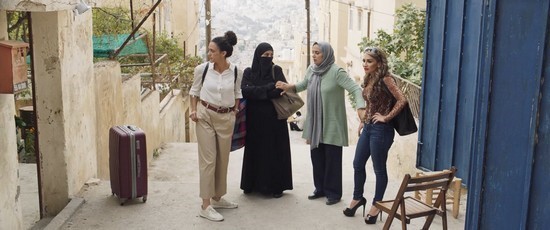
Thorny issues such as gender discrimination and
wearing the niqab are also discussed.
The film follows Zainab and her three sisters,
Amaal, Samah, and Khitam. While each is busy with their own life and estranged
from one another, their father’s sudden disappearance forces them all home to
solve the mystery.
Women archetypes
As events unfold, we are
presented with four different types of women living in a middle-class
neighborhood in Amman.
The first woman suffers from physical marital
violence and takes care of her teenage daughter, whose father wants to marry
her off. Amaal, played by
Saba Mubarak, wears the niqab and reflects the
traditional image of religiousness in its social context.
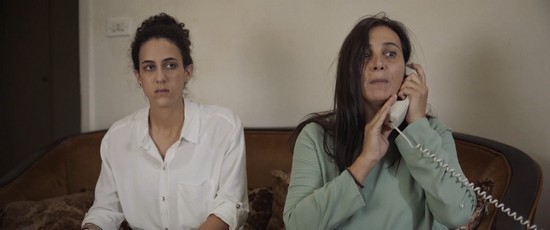
The second archetype, Zainab, played by Farah
Bsieso, is the eldest sister who never married. Working as a dressmaker while
dreaming of studying music, she supports her father and represents the
traditional role of the spinster. She battles with society’s views of her,
honoring her parents’ wishes, and psychological pressures.
The third sister, Samah, played by Hanan Hillo, is
married to a rich man who she later discovers is gay. Her dreams of having
children turn into a nightmare, and she seeks out other means to escape from a
reality that is difficult to come to terms with.
Abu Hamdan conducted extensive research on the reality of local women, which was evident in his character building.
The fourth sister, Khitam, played by Mariam Basha,
traveled to Dubai, against tradition, to live with her boyfriend against her
family’s wishes.
Amid their search for their father, the sisters
embark on a journey of self-discovery, standing on the edge of life-altering
decisions and facing hard truths.
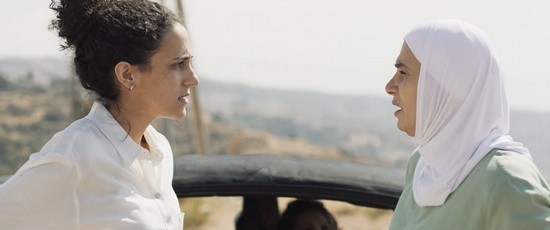
The protagonists represent real people in many
Middle Eastern cultures, and although funny, sorrow seeps through as the film
criticizes society through the sisters’ search for freedom. It shows that
finding space to come up for air can be difficult amid dated customs and
realities that feel far away from dreams.
Abu Hamdan conducted extensive research on the
reality of local women, which was evident in his character building. He depicts
the conformity in society, the presence of religion, inequality between the
sexes, the verbal and physical violence against women, and the marriage of
underage girls, daringly.
And while the director is a man, producer and cast
member Saba Mubarak showed the movie through a female lens.
Awards
Recently, the film was
screened at
Amman International Film Festival-Awal Film and was well received,
with tickets selling out as soon as they were announced. The film also received
the Audience Award for Best Feature Film (Golden Lynx Fiction) at FEST at the
New Directors/New Films Festival in Portugal.
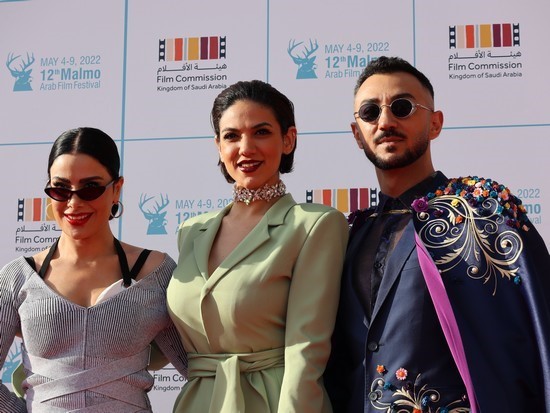
Daughters of Abdul-Rahman has been commercially
released in Saudi and Kuwaiti theaters. It opened the Malmo Arab Film Festival
in Sweden and won the Audience Award at San Diego Arab Film Festival.
It premiered at Cairo International Film Festival,
where it won the Audience Award, and then later was screened at Beirut
International Women’s Film Festival.
It also played at the first edition of the Red Sea
International Film Festival (Arab Spectacular Section).
The film received several funds, including the Doha
Film Institute development fund, the Jordan Film Fund from the
Royal Film Commission’s (RFC) development and production funds, and the CineGouna Platform
for post-production fund at El Gouna Film Festival.
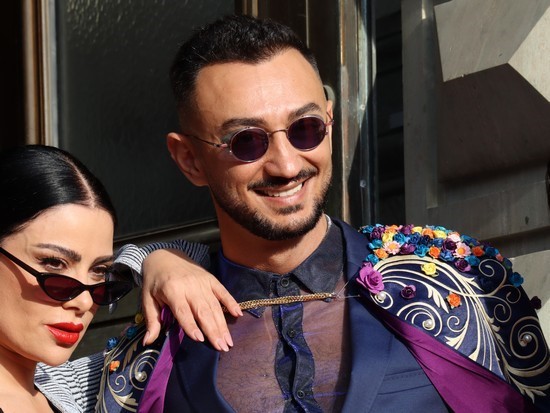
The film was also selected as a finalist project at
the Tribeca Film Festival-All Access program and selected for the RFC Rawi
Screenwriters Lab.
The director was born and raised in Amman, Jordan, and holds
an MFA from the New York Film Academy in Hollywood, California.
Read more Entertainment
Jordan News



